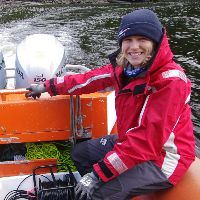Monitoring Heat and Salt Transports in Global Ocean Circulation Using Remote Sensing
A special issue of Remote Sensing (ISSN 2072-4292). This special issue belongs to the section "Ocean Remote Sensing".
Deadline for manuscript submissions: 15 June 2024 | Viewed by 269
Special Issue Editors
Interests: polar oceanography; satellite; freshwater fluxes; ocean dynamics; salt transport; sea surface height; sea surface temperature; sea surface salinity
Interests: physical oceanography; ocean-ice interactions; Fram Strait; plumes; turbulence; internal waves; coastal oceanography
2. Department of Physics, Institute for Marine and Atmospheric Research Utrecht, Utrecht University, Utrecht, The Netherlands
Interests: ocean currents and circulation; physical oceanography; satellite data
Interests: sea waves; satellite altimetry for wave studies
Special Issue Information
Dear Colleagues,
We are pleased to announce a Remote Sensing Special Issue entitled “Monitoring Heat and Salt Transports in Global Ocean Circulation Using Remote Sensing” and invite you to submit your scientific findings relating to this topic. Understanding ocean heat and salt fluxes is essential to comprehending global climate patterns and the ocean’s role in the Earth’s energy budget.
Remote sensing techniques have emerged as valuable tools for analyzing these fluxes, providing a comprehensive and synoptic view of the surface properties of the ocean. Satellites allow for the continuous monitoring of heat and salt fluxes in time and space. Long-term Earth observation records provide useful data for studying interannual variability and climate trends. Heat fluxes impact weather patterns, ocean currents, and the global distribution of heat. When combined with atmospheric data, SST data derived from remote sensing helps identify regions of heat exchange between the ocean and atmosphere, such as upwelling and downwelling regions, which have a significant influence on climate phenomena such as El Niño and La Niña. Similarly, remote sensing offers valuable insights into the ocean’s salt fluxes. The estimation of SSS from remote sensing platforms contributes to the comprehension of ocean circulation dynamics and their effect on the distribution of heat. The density and buoyancy of seawater are affected by salt fluxes, thereby influencing thermohaline circulation, which plays a crucial role in the global redistribution of heat. Salt fluxes are also linked to freshwater fluxes, which is a very relevant topic for the study of the water cycle and its role in climate regulation. Moreover, there is a connection between heat and salt content that substantially impacts density spatial patterns and, thus, affects critical aspects of climate and ocean sciences such as mixed layer depth. The resulting changes in the stratification of the seawater column play a very important role in determining the exchange of properties between the ocean and the atmosphere. Lastly, the monitoring of sea surface temperature and salinity can help identify oceanic fronts, relevant, for example, to the behavioral understanding of different marine species.
This Special Issue aims to showcase the latest advancements in remote sensing methodologies, data analysis techniques, and modeling approaches for quantifying heat and salt fluxes in the ocean, as well as those offering a deeper knowledge of the implications of the findings. We welcome original research articles, review papers, case studies, and methodological advancements that:
- Explore the applications of remote sensing in this field, from both an Eulerian and Lagrangian perspective.
- Advance data fusion techniques, validation, coupled modeling approaches, and the assimilation of remote sensing data in this field.
- Dive into new or poorly studied dynamic phenomena involving heat and salt fluxes.
- Study the coupling of the atmosphere and ocean by means of satellite data and in situ data.
- Produce new insights in the climate implications of such fluxes.
By bringing together diverse perspectives and cutting-edge research, this Special Issue will significantly contribute to our knowledge of the ocean’s role in the Earth’s energy budget and climate dynamics.
Dr. Marta Umbert
Dr. Rebecca McPherson
Dr. Laura Gómez Navarro
Dr. Sergei Badulin
Manuel Arias
Guest Editors
Manuscript Submission Information
Manuscripts should be submitted online at www.mdpi.com by registering and logging in to this website. Once you are registered, click here to go to the submission form. Manuscripts can be submitted until the deadline. All submissions that pass pre-check are peer-reviewed. Accepted papers will be published continuously in the journal (as soon as accepted) and will be listed together on the special issue website. Research articles, review articles as well as short communications are invited. For planned papers, a title and short abstract (about 100 words) can be sent to the Editorial Office for announcement on this website.
Submitted manuscripts should not have been published previously, nor be under consideration for publication elsewhere (except conference proceedings papers). All manuscripts are thoroughly refereed through a single-blind peer-review process. A guide for authors and other relevant information for submission of manuscripts is available on the Instructions for Authors page. Remote Sensing is an international peer-reviewed open access semimonthly journal published by MDPI.
Please visit the Instructions for Authors page before submitting a manuscript. The Article Processing Charge (APC) for publication in this open access journal is 2700 CHF (Swiss Francs). Submitted papers should be well formatted and use good English. Authors may use MDPI's English editing service prior to publication or during author revisions.
Keywords
- heat/salt transport and fluxes
- freshwater budget
- earth energy budget
- remote sensing
- water cycle
- global ocean circulation
- El Niño and La Niña
- sea surface salinity
- sea surface temperature









